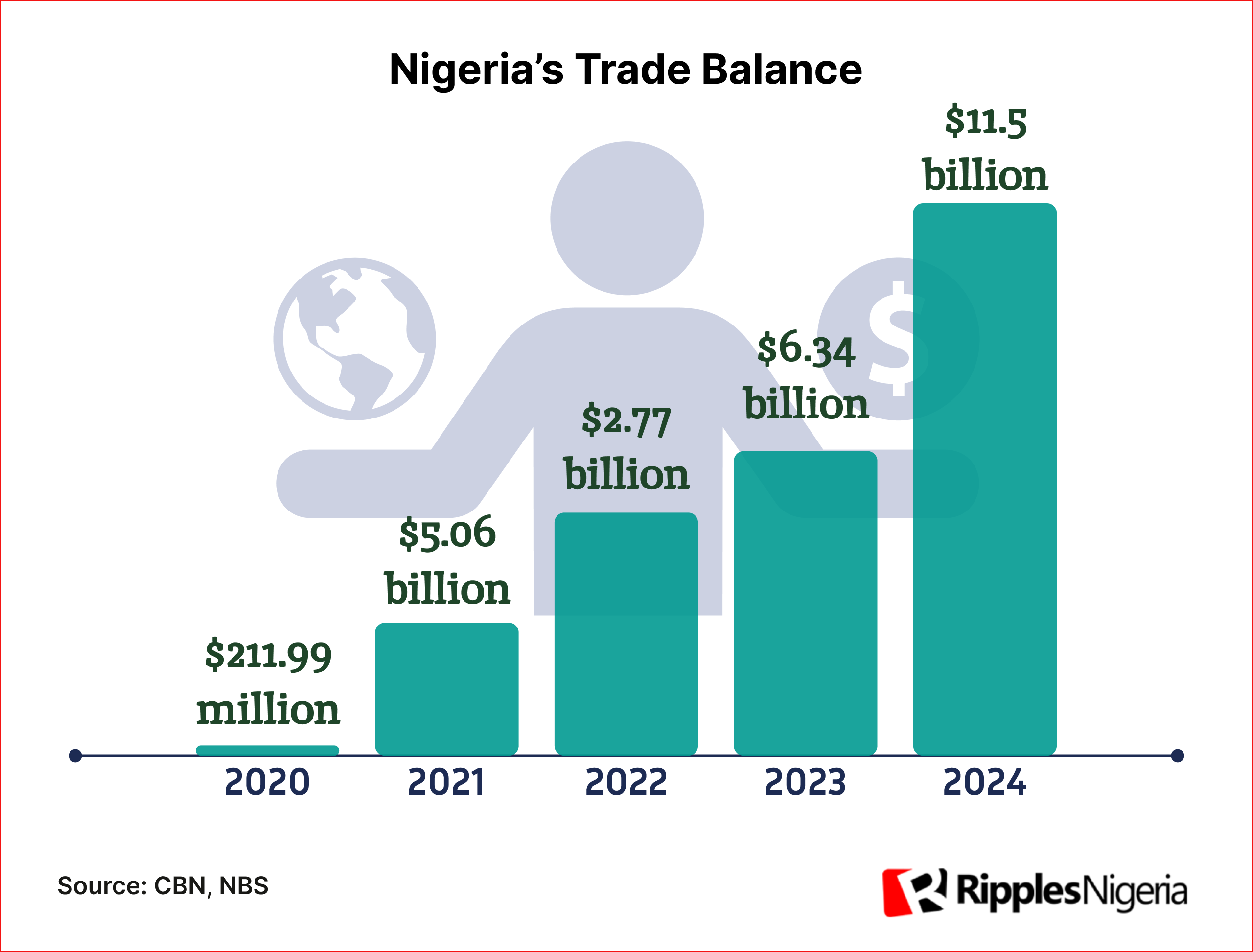Ripples Metrics
RipplesMetrics: Nigeria’s trade surplus hits $11.5bn in 2024, highest in over a decade

Nigeria posted a trade surplus of $11.5 billion in 2024, marking its highest positive trade balance in more than a decade, according to data from the Central Bank of Nigeria and the National Bureau of Statistics. This continues a strong rebound in the country’s external trade position after two years of deficits during the COVID-19 era.
The figures show that Nigeria exported goods worth $52.7 billion in 2024, while importing goods valued at $41.2 billion. This 2024 performance builds on successive surpluses recorded in 2022 ($2.77 billion) and 2023 ($6.34 billion), reflecting strengthening export capacity and a tighter grip on import spending.
The last time Nigeria recorded a trade balance close to this level was in the early 2010s, when booming oil prices bolstered export revenues. Since then, economic shocks—most notably the oil price crash of 2015 and the global pandemic—pushed the country into a trade deficit in 2016, 2020, and 2021.
“The 2024 trade surplus highlights a shift toward recovery and improved external sector stability,” said a senior analyst. “It reflects a combination of higher crude oil earnings, increased non-oil exports, and import substitution policies that are beginning to yield results.”
Between 2020 and 2024, Nigeria’s imports declined from a peak of $60.5 billion in 2022 to $41.2 billion in 2024, suggesting successful efforts to reduce dependency on foreign goods. Meanwhile, exports rose from $35.7 billion in 2020 to $52.7 billion in 2024—driven largely by increased oil production and improved global commodity prices.
Historically, Nigeria maintained a positive trade balance between 2008 and 2015. However, the economy dipped into a trade deficit in 2016 and again in 2020 and 2021. The return to surplus since 2022 marks a notable trend reversal.
Experts caution that while the trade surplus is encouraging, Nigeria must diversify its export base to guard against external shocks. “We’re still heavily reliant on crude oil. Sustainable growth will require scaling up manufacturing exports and improving the competitiveness of our non-oil sectors.”
The trade surplus comes at a time Nigeria faces internal economic challenges, including inflationary pressure, exchange rate volatility, and sluggish growth. Nonetheless, the improvement in external trade offers a buffer for the nation’s foreign reserves and supports the naira’s stability in the foreign exchange market.
With three consecutive years of trade surpluses and the largest in over a decade recorded in 2024, Nigeria appears to be on a cautiously optimistic path toward external economic resilience.
By: James Odunayo
Join the conversation
Support Ripples Nigeria, hold up solutions journalism
Balanced, fearless journalism driven by data comes at huge financial costs.
As a media platform, we hold leadership accountable and will not trade the right to press freedom and free speech for a piece of cake.
If you like what we do, and are ready to uphold solutions journalism, kindly donate to the Ripples Nigeria cause.
Your support would help to ensure that citizens and institutions continue to have free access to credible and reliable information for societal development.




























